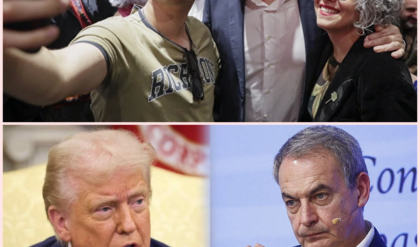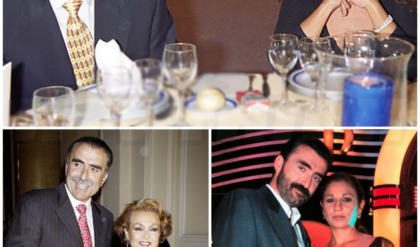Burial of Secrets: The Day Politics Took a Dark Turn
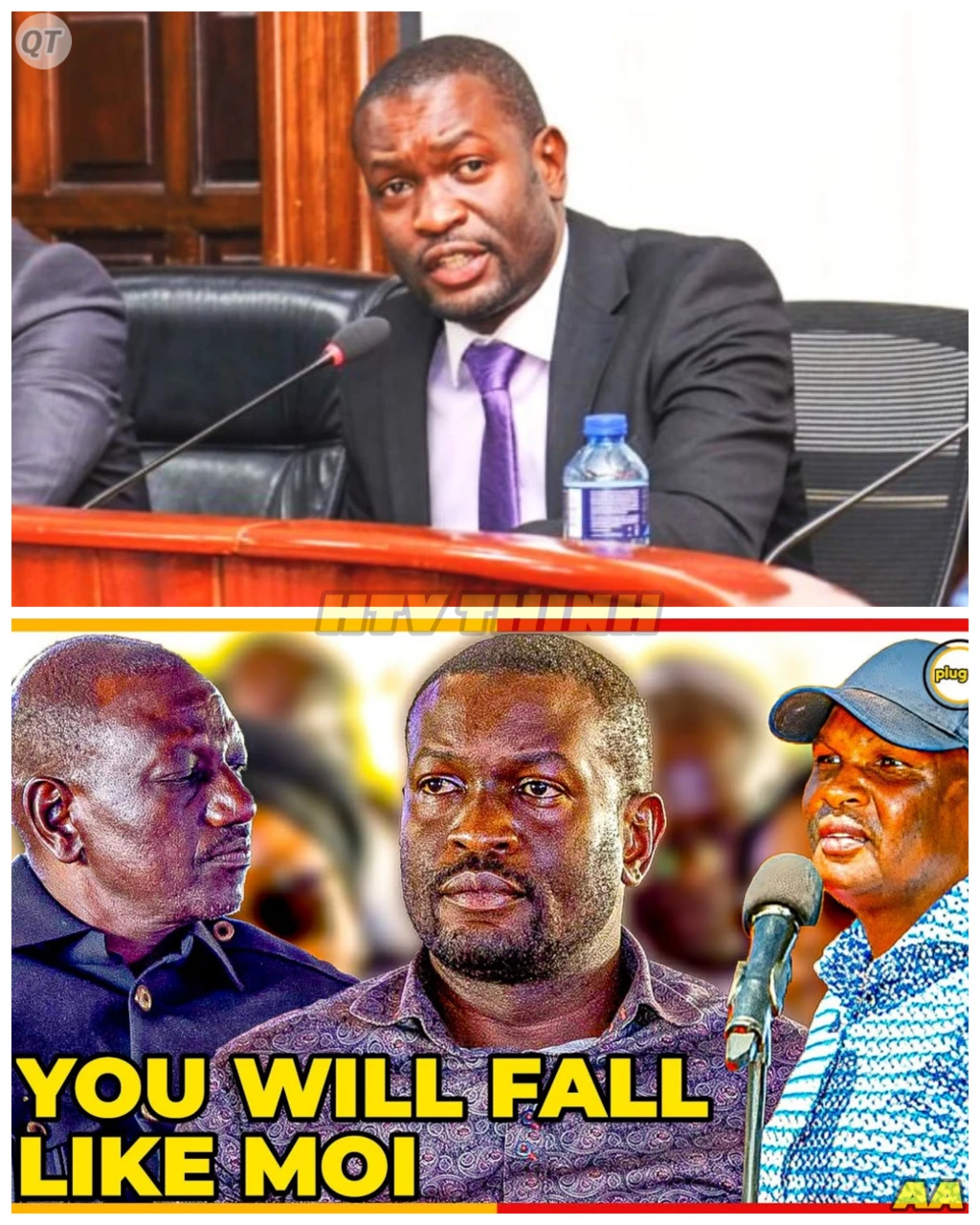
In the heart of Nairobi, the atmosphere was thick with tension as the sun rose over the horizon.
It was the day of the funeral for a prominent political figure, a man whose influence had shaped the nation for decades.
As mourners gathered at the cemetery, whispers of discontent filled the air.
Among the attendees were Deputy President Ruto, Senator Sifuna, Governor Orengo, and Jalango, a popular politician and entertainer.
The mood was somber, but underlying currents of political rivalry were palpable.
Deputy President Ruto arrived first, his demeanor stoic.
He was well aware that today was not just about mourning; it was a stage for political maneuvering.
The late politician had been a mentor to many, including Ruto, who had learned the ropes of power from him.
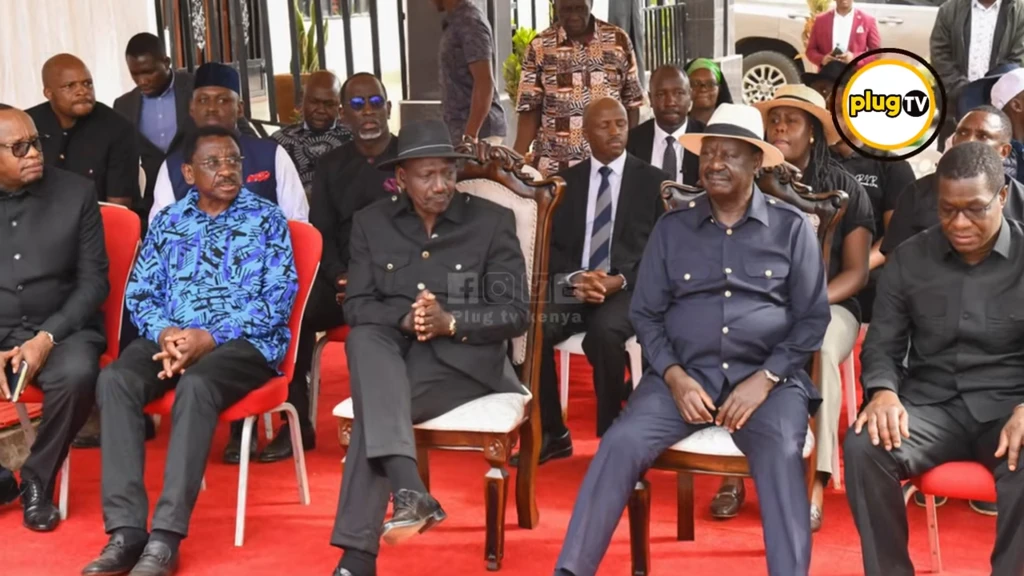
But as he surveyed the crowd, he noticed the glances exchanged between Sifuna and Orengo.
Their body language was telling; they were plotting something.
As the ceremony began, eulogies were delivered, each speaker trying to outdo the last with tales of the deceased’s greatness.
Sifuna, with his charismatic oratory, took the stage first.
“Today, we honor a man who fought tirelessly for our rights,” he declared, his voice booming.
“But we must also remember that the struggle continues.
We cannot let the legacy of our fallen leader die in vain.”
The crowd erupted in applause, but Ruto felt a twinge of irritation.
He knew Sifuna was using this moment to rally support against him.
Next up was Orengo, who took a more subtle approach.
“Let us not forget the sacrifices made by those who came before us,” he said, glancing pointedly at Ruto.
“It is our duty to carry the torch forward, to ensure that our leaders are held accountable.”
The tension in the air thickened.
Ruto clenched his fists, feeling the weight of their words.
He had always been a fighter, but today felt different.
It was as if the funeral had turned into a battleground.
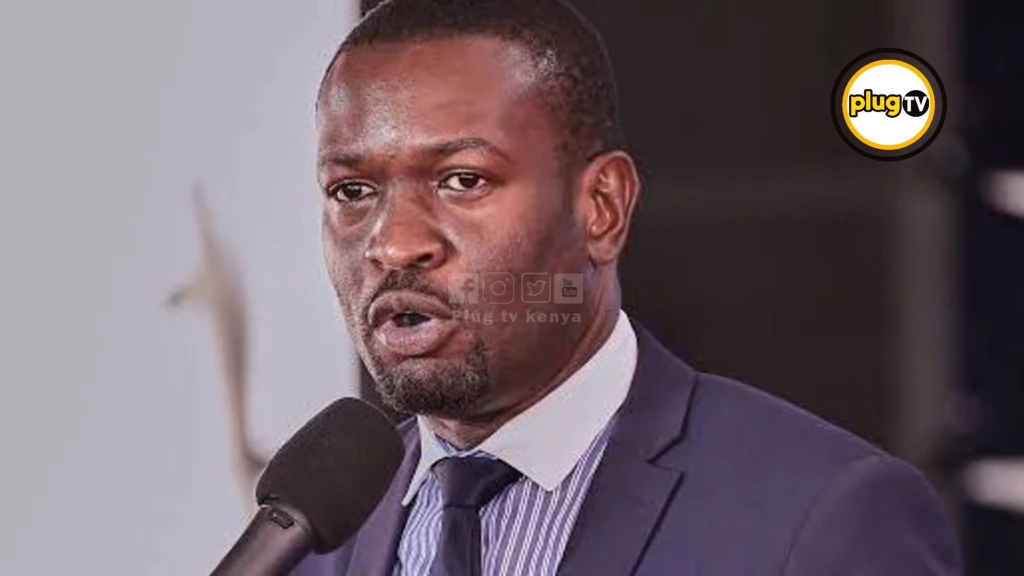
As the ceremony progressed, Jalango stepped up to speak.
His light-hearted demeanor broke the tension momentarily.
“Let’s remember the good times,” he said, eliciting laughter from the crowd.
But even his humor couldn’t mask the underlying rivalry.
After the speeches, the crowd began to disperse, but not before Sifuna and Orengo approached Ruto.
“Can we have a word?” Sifuna asked, a smirk playing on his lips.
Ruto nodded, knowing he had little choice.
They moved to a quieter corner of the cemetery, away from prying eyes.
“What do you want?” Ruto asked, his voice low and guarded.
Orengo stepped forward, his expression serious.
“We need to talk about the future of our party,” he said.
“There are rumors that you’re planning to run for president.
We can’t let that happen without a fight.”
Ruto felt a surge of anger.
“Who do you think you are, threatening me at a funeral?” he snapped.
“This is not the time or place for your games.”
But Sifuna interjected, his tone icy.
“We’re not playing games, Ruto.
This is about the future of our country.
You’ve been making decisions that affect us all, and we won’t stand by and watch you ruin everything our mentor fought for.”
The confrontation escalated, voices rising as they exchanged heated words.
Mourners began to notice the commotion, casting curious glances their way.
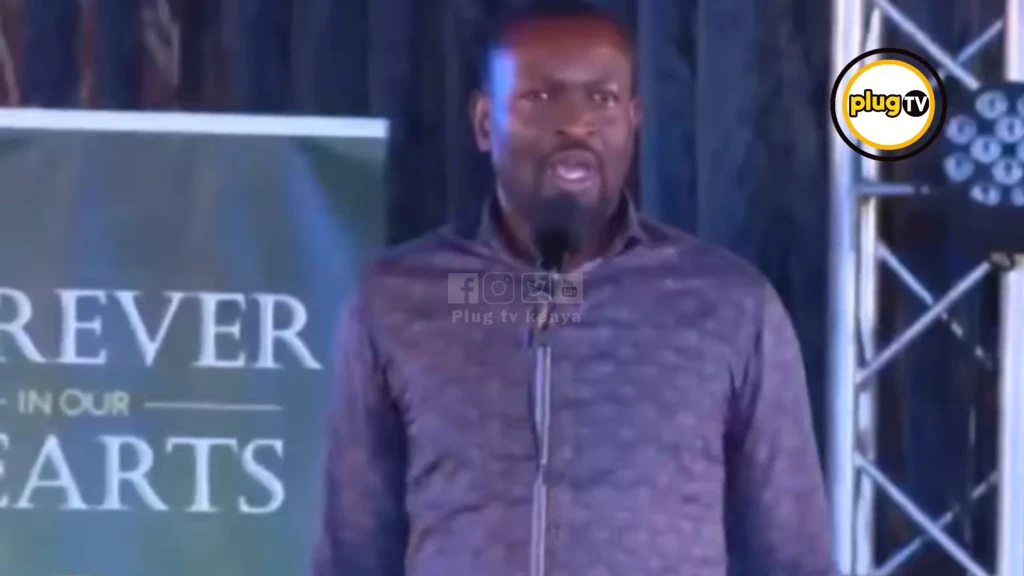
Jalango, sensing the tension, tried to intervene.
“Guys, let’s not do this here.
We’re supposed to be honoring someone’s memory,” he urged.
But Ruto was unyielding.
“I will not be intimidated by you two,” he declared, his voice echoing across the cemetery.
“You think you can gang up on me?
I’ve faced tougher opponents than you.”
The argument reached a fever pitch, drawing the attention of other politicians present.
Some whispered among themselves, while others pulled out their phones to record the spectacle.
This was not just a funeral; it was a political circus.
Suddenly, Sifuna leaned in closer, lowering his voice.
“Just remember, Ruto, we have the support of the people.
If you continue down this path, you’ll find yourself alone.”
With that, they turned and walked away, leaving Ruto seething with anger.
As the sun began to set, casting long shadows over the cemetery, Ruto felt the weight of the day pressing down on him.
This was more than just a funeral; it was a battle for the soul of their party.
He knew he had to act quickly to regain control.
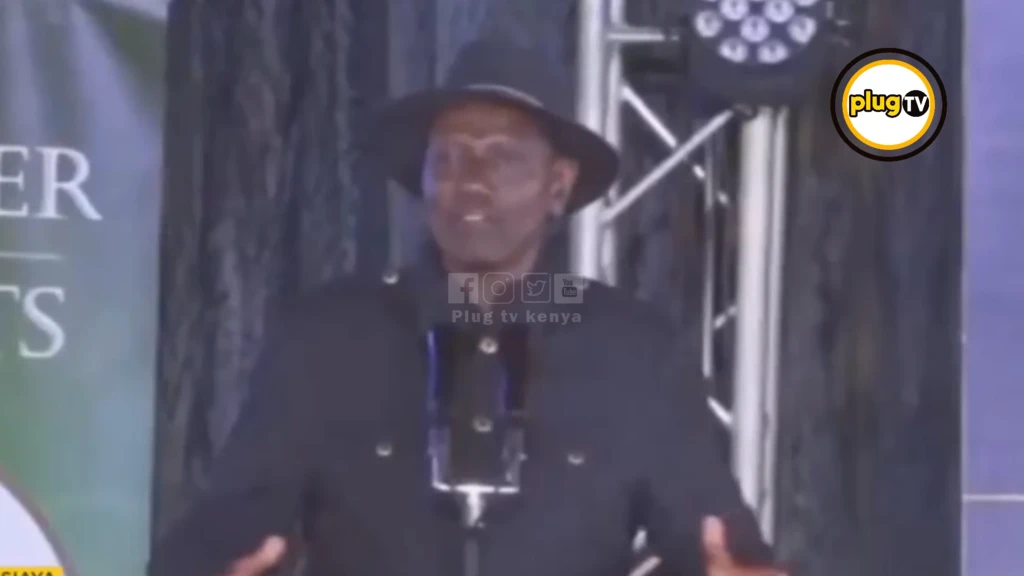
That night, he called an emergency meeting with his closest allies.
“We can’t let Sifuna and Orengo undermine us,” he said, pacing the room.
“We need a strategy to counter their influence.”
His advisors nodded, eager to support him.
They brainstormed ideas, discussing how to rally public support and counter the narrative being pushed by his rivals.
The following week, Ruto took to social media, posting a heartfelt tribute to the deceased politician.
He framed himself as the true heir to the legacy, promising to honor the man’s memory by continuing his fight for the people.
The post went viral, garnering thousands of likes and shares.
But Sifuna and Orengo were not idle.
They launched their own campaign, highlighting Ruto’s alleged missteps and painting him as untrustworthy.
The battle lines were drawn, and the political landscape shifted dramatically.
Supporters of both factions began to clash, leading to heated debates on social media and in public forums.
The tension escalated, and soon, the nation was divided.
As the weeks passed, the rivalry intensified.
Ruto organized rallies, drawing large crowds who chanted his name.
But Sifuna and Orengo countered with their own events, emphasizing unity and accountability.
The media feasted on the drama, turning every appearance into a spectacle.
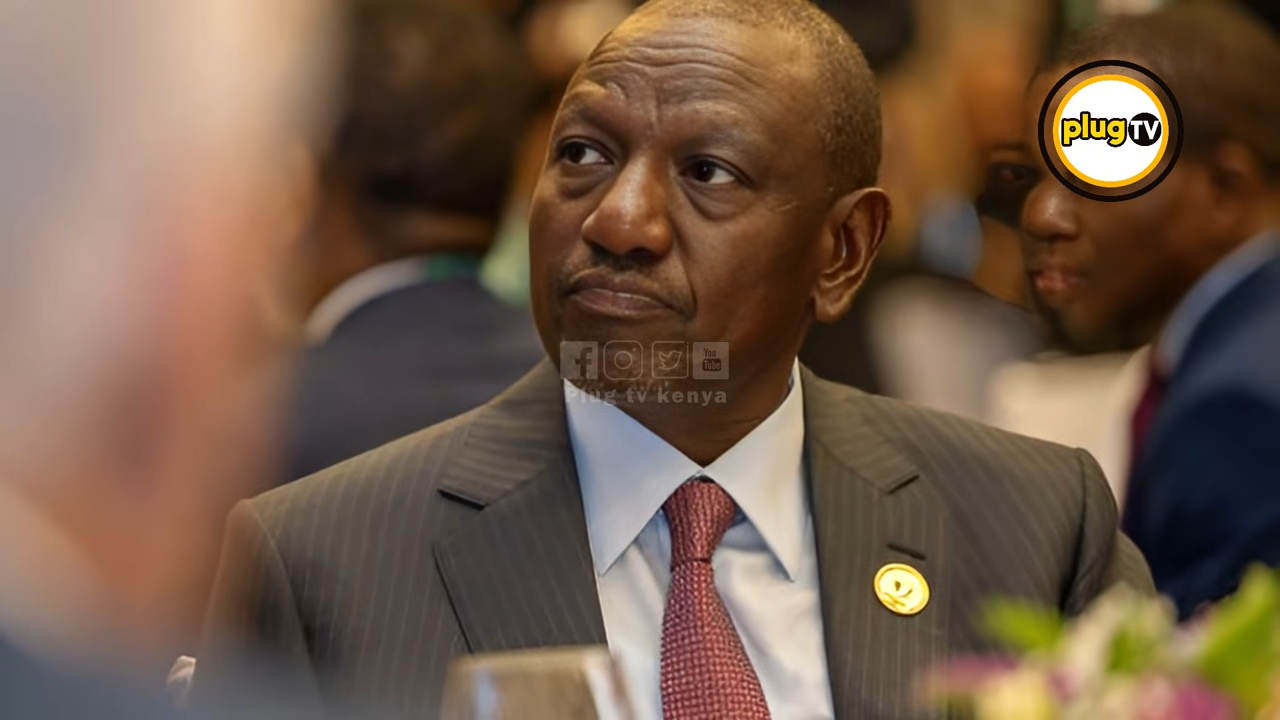
It became clear that this was no longer just about politics; it was personal.
One evening, during a live debate, Ruto confronted Sifuna directly.
“You think you can take me down with your lies?” he challenged, his voice steady.
Sifuna shot back, “It’s not lies, Ruto.
It’s the truth.
The people deserve better.”
The audience erupted in applause, and Ruto felt the pressure mounting.
He knew he had to deliver a knockout blow.
In a moment of desperation, Ruto revealed a secret he had kept hidden.
“Let’s talk about your past, Sifuna,” he said, his tone dripping with disdain.
“Do you really think the people have forgotten?”
The revelation sent shockwaves through the room.
Sifuna’s face paled as the audience gasped.
“Is this how low you’ve sunk?” he retorted, attempting to regain control.
But the damage was done, and the debate ended in chaos.
As the election approached, the rivalry reached a boiling point.
Supporters clashed in the streets, and accusations flew like arrows.
Ruto, Sifuna, and Orengo were now locked in a fierce battle for the hearts and minds of the people.
On the day of the election, the atmosphere was electric.
Voters lined up at polling stations, their faces a mix of determination and anxiety.
Ruto made one last push, rallying his supporters with passionate speeches.
“We will not be silenced!
We will rise together!” he proclaimed, his voice echoing across the crowd.
As the votes were counted, tension hung in the air.
Finally, the results were announced, and the outcome sent shockwaves through the nation.
Ruto emerged victorious, but the victory was bittersweet.
The divide among the people had deepened, and the political landscape would never be the same.
In the aftermath, Ruto realized that winning was only the beginning.
He had to bridge the gap, heal the wounds, and unite a fractured nation.
As he stood on the steps of his office, he vowed to lead with integrity and honor the legacy of the man they had gathered to mourn.
The day of the funeral had become a turning point, a reminder that in politics, the stakes are always high, and the battle for power is never truly over.
And as Ruto looked out over the crowd, he knew that the real work was just beginning.
.
.
.
.
.
.
.
.
.
.
.
.
.
.
.
.
.
.
.
.
.
.
.
.
.
.
.
.
.
.
.
.

